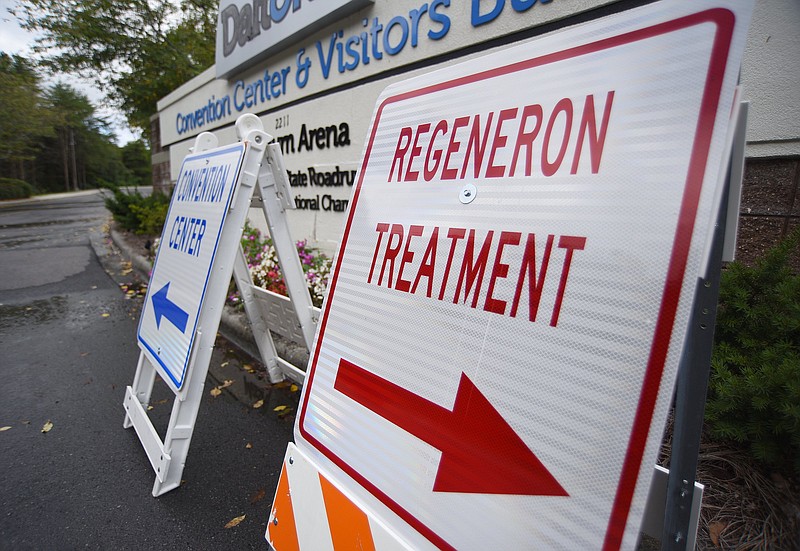Due to limited supply of the medication, the city of Dalton, Georgia, will no longer offer free treatments of Regeneron's monoclonal antibodies to those who test positive for and show symptoms of COVID-19.
Earlier this year, Dalton became one of the first cities in the nation to offer free monoclonal antibody treatments to treat COVID-19. Thousands of people from across North Georgia traveled to the drive-in clinic on Tony Ingle Parkway to receive a set of injections that could mean the difference between hospitalization and getting well at home. Now sick people will have to look elsewhere to receive the treatment.
(READ MORE: North Georgia schools report significant increase in COVID-19 cases since Christmas)
The city announced its decision to suspend operations of its clinic earlier this month on its website, stating that there were "extremely limited supplies of the medication."
During a phone call with the Times Free Press on Friday, Dalton Communications Director Bruce Frazier said that while limited supply was the biggest factor in the city's decision to stop offering the treatments, the effectiveness of the medicine against the omicron variant also played a role.
(READ MORE: Patients praise Regeneron as antibody treatments continue in Dalton, Georgia)
"Omicron is the dominant strain in Georgia now. Unfortunately, the treatment that we have been offering is significantly less effective at battling that variant," Frazier said. "It still helps but much less so."
Frazier said there are monoclonal antibody treatments that are geared more directly toward fighting the omicron variant of COVID-19 but noted those treatments are only available through an IV at this time.
"We are not set up to offer treatment through an IV. That is something that would be very difficult at a drive-in clinic like ours," he said. "We do believe, however, that pills will be one of the main ways treatment is given moving forward from here. If that is true and we can get that medicine, or if a more effective injection treatment becomes available, we can always reopen. We are still set up to offer that if we need to do so."
In late November of last year, Regeneron Pharmaceuticals released a statement confirming that there "may be reduced neutralization activity of both vaccine-induced and monoclonal antibody conveyed immunity" against the omicron variant. In the statement, the company said it was working to develop "next generation antibodies" that may be more likely to retain their effectiveness against omicron and other variants.
On Dec. 31, the Centers for Disease Control and Prevention issued this advisory through its Health Alert Network: "The omicron variant, with its numerous mutations in the spike protein, is not neutralized by the most frequently prescribed monoclonal antibody-based COVID-19 treatments."
CDC Director Rochelle Walensky followed the statement with a warning during a White House press briefing on Jan. 5, during which she said omicron represented "about 95% of cases in the country," with delta representing the remaining 5% of cases.
"The sharp rise in cases and the emergence of the more transmissible omicron variant emphasizes the importance of vaccinations and boosters," Walensky said. "Vaccines and boosters are protecting people from the severe and tragic outcomes that can occur from COVID-19 infection. We're asking everyone to follow these four steps: Get vaccinated and get boosted if you are eligible, wear a mask, stay home when you're sick and take a test if you have symptoms or are looking for greater, extra reassurance before you gather with others."
Contact Kelcey Caulder at 423-757-6327 or kcaulder@timesfreepress.com.
